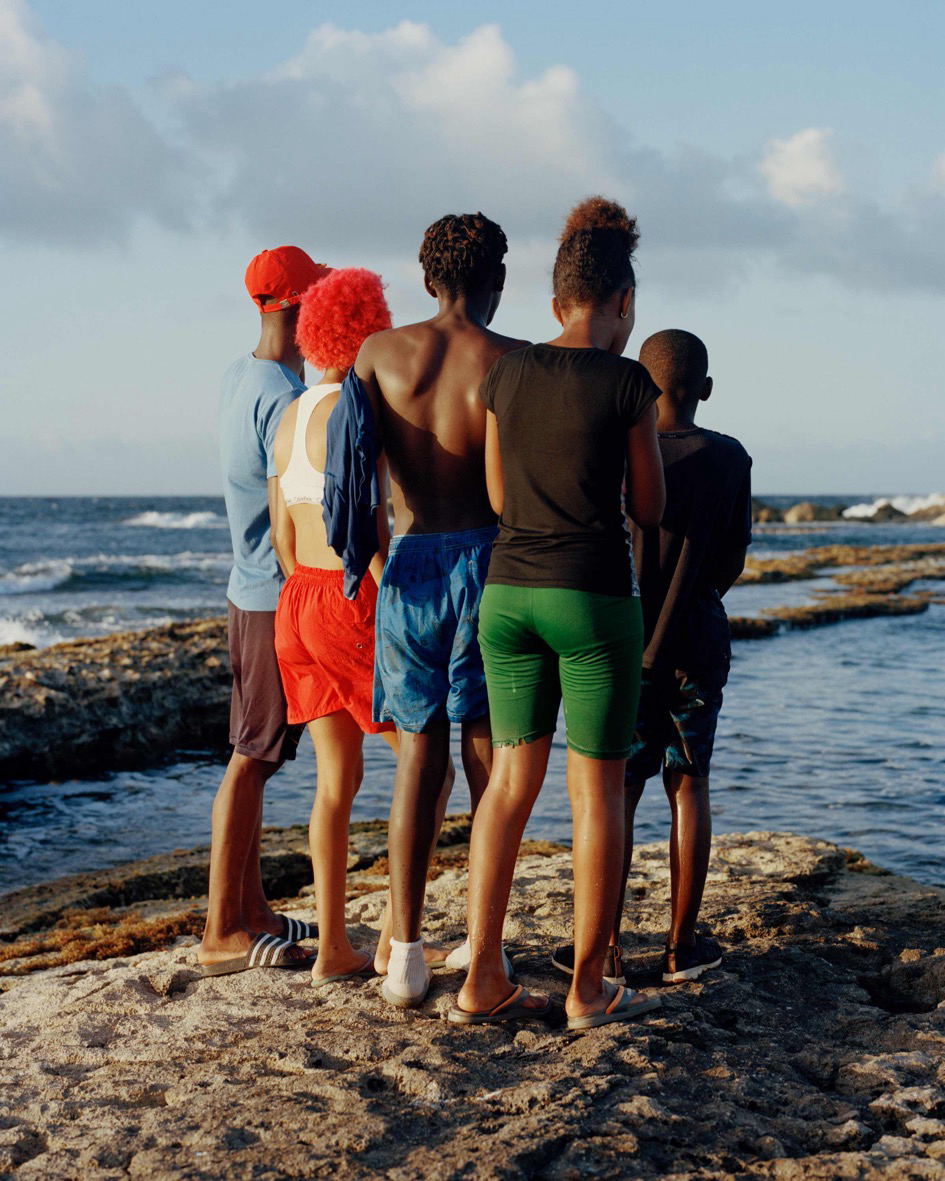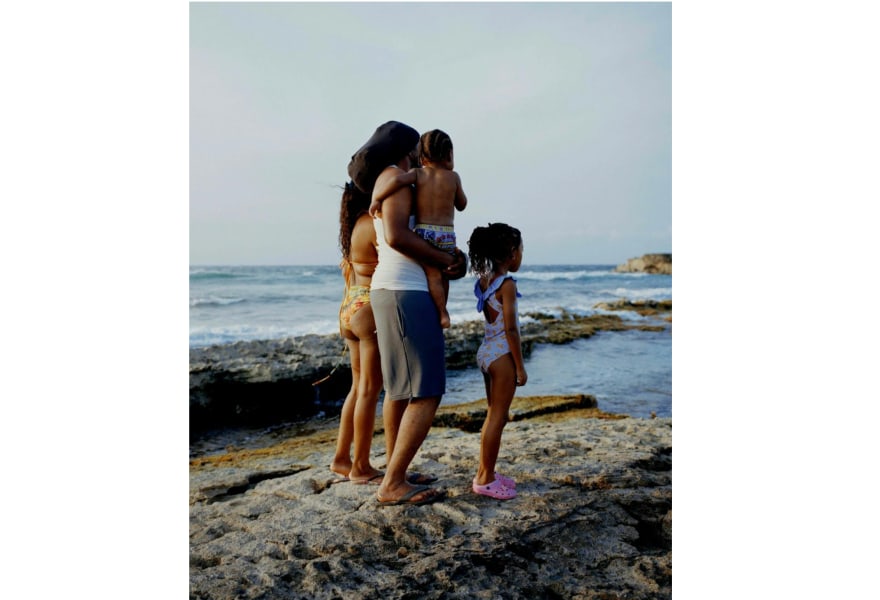16 august 2024, Flor Linckens
Nominees for the Meijburg Art Commission 2024: 1/5 Gilleam Trapenberg
Meijburg & Co and Unseen have proudly presented the Meijburg Art Commission since 2015. Each year, artists participating at Unseen are invited to submit work relating a theme. Out of these proposals a shortlist of five artists is selected, whose work will be exhibited in the Meijburg Lounge at Unseen, and where a winner will be announced. The winner of the Meijburg Art Commission will receive an encouragement prize of 5.000,- and their artwork will be bought into the Meijburg & Co art collection.
The theme for the Meijburg Art Commission 2024 is ‘Prosperity’. The economic definition of prosperity is "a successful, flourishing, or thriving condition, especially in financial respects; good fortune". However, the ecological definition of the term is "the extent to which a species flourishes under certain circumstances". In recent years, those two different perspectives have become more fluid when considering our personal wellbeing and that of our society. What does it mean to flourish as a human, both individually and as a society? Is it merely about financial security, or do we also need to consider other factors, such as time for ourselves and for each other, the environment and culture, to truly thrive?
The five nominated artists for the Meijburg Art Commission 2024 are Anna Fabricius (TOBE Gallery), Klaas Kloosterboer (Ellen de Bruijne Projects), Lee-Ann Olwage (The Bridge Gallery), Melissa Schriek (Hama Gallery) and Gilleam Trapenberg (Galerie Ron Mandos).
Gilleam Trapenberg was born in Willemstad, Curaçao in 1991. Aged nineteen, he moved to the Netherlands to study Photography at the Royal Academy of Art (KABK) in The Hague. He currently resides and works in Amsterdam. Trapenberg's work is deeply influenced by his experience of living with a dual perspective: the vibrant and often paradoxical Curaçao, contrasted with the structured environment of the Netherlands. His intuitive approach focuses on the social landscapes of Curaçao and Sint Maarten, delving into the complexities that define these regions. Through his photography, Trapenberg unveils aspects of the Caribbean that are rarely depicted, addressing the significant gap between the simplistic, stereotypical and exoticizing portrayals prevalent in Western (predominantly white) visual culture and the lived realities of himself and his community. His aim is to offer counter-images that enrich the existing narrative, creating a compelling document with social commentary.

Gilleam Trapenberg, Kant’i Laman No. 1, Fine art inkjet print on Baryta paper, 2022, Galerie Ron Mandos
His photographs reflect his personal memories of growing up in Curaçao, while also offering a critical perspective on the colonial legacy deeply embedded in the culture, the impact of tourism, and the clichéd and utopian images circulating in the West. This approach results in vibrant, layered, and sometimes poignant or raw works. The artist occasionally merges these images with a personal, slightly romanticised, and nostalgic longing for his childhood home. Additionally, he delves into themes such as masculinity and machismo, notions of family, and the future aspirations of young people, in which he sees reflections of his own youthful dreams.
In his series 'Playa', currently on view in his solo exhibition of the same name at the Stedelijk Museum Schiedam, he reveals a side of the island rarely seen in tourist brochures but essential to the lives of its inhabitants: a place for communal relaxation. The rocky volcanic beach on the north side of the island serves as the backdrop for a series of portraits in which the artist explores the concept of prosperity. By interpreting prosperity not only in capitalist terms but also as social capital, he paints a more holistic and nuanced portrayal. These photos show how people truly live and symbolise the pivotal role that family and friends play in maintaining and enhancing cultural richness, identity and community. A striking detail is the fact that he captures these families, groups of friends and couples from the behind, as they gaze out at the sea, and by extension, towards Europe.
The Meijburg Art Commission recognises artists that address complex social themes from various perspectives. The work of Gilleam Trapenberg aligns seamlessly with this by emphasising social connectedness as a crucial factor for well-being. Trapenberg's practice reflects on societal issues and underscores the importance of exploring and appreciating diverse points of view. His approach fits well within Meijburg's vision to examine complex subjects in a creative and profound manner.
Trapenberg's work has been exhibited at Foam Fotografiemuseum Amsterdam, the Stedelijk Museum, Fotomuseum Den Haag, the Shanghai Center of Photography, and recently at the National Portrait Gallery in London, on the occasion of winning a Wessing Photo Portrait Prize. Trapenberg has received numerous awards and grants, including a Lensculture Emerging Talent Award and a Florentine Riem Vis Stipendium. His work is part of the collections of the Stedelijk Museum, the Nederlands Fotomuseum, the Mondriaan Fund, De Nederlandsche Bank, the Government Art Collection and the Stedelijk Museum Schiedam. In 2017, he published his first photobook, 'Big Papi'. This summer, his work is also featured on the streets of Amsterdam as part of Buro Stedelijk Manifestation #59.

Gilleam Trapenberg, Kant’i Laman #9, Fine art inkjet print on Baryta paper, 2024, Galerie Ron Mandos
